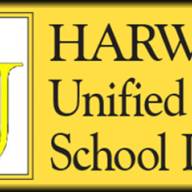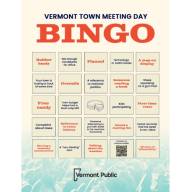Data privacy, usually done behind the scenes of websites and businesses, is a complex yet necessary process. It involves both legal aspects and, in some cases, content filtering systems. It is also a necessary process for schools.
At Harwood Union, HUUSD curriculum director, Shannon Lessley, and the HUUSD assistant director of education technology, Nathan Gingras, have a specific system for blocking websites based on student data protection and content filtration.
Student data protection requires compliance with federal and state laws that feature many acronyms: FERPA, COPPA, CIPA, and SOPIPA. FERPA, or the 1974 Family Education Rights and Protection Act, states that parents must sign off if schools wish to release personal information about their students. COPPA, or the 1998 Children’s Online Privacy Protection Act, requires online websites advertised to children younger than 13 to protect the release of personal identifying information (PII) of those children.
Companies and websites must include a privacy policy or acquire parental consent if information is released. CIPA, the 2000 Children’s Internet Protection Act, requires schools and libraries to prove that they have an Internet safety system that blocks obscene and inappropriate material and protects PII to qualify for any information services discounts.
SOPIPA, a state law, is the 2020 Student’s Online Personal Information Protection Act. It requires that education technology services do not use student data for anything other than educational purposes and does not sell PII for advertising purposes. Along with CIPA requirements, content may be blocked based on content (for example, many online games are blocked on HUUSD computers).
“While some content might be restricted due to inappropriate material, the primary concern often revolves around protecting student data and privacy,” said Lessley.
School districts can also sign Data Processing Agreements, abbreviated as DPAs. According to Lessley, Harwood goes through a partner company to advocate for the district and reach out to companies regarding DPAs. If a company refuses to sign one, like Quizlet, then it is blocked out of concern for student data. However, if a site or a video that teachers heavily lean on is blocked, HUUSD teachers can request that it be unblocked. The site goes through a verification process, and if it is approved, then it can be unblocked.
According to. Lessley and Gingras, students currently learn basic internet safety very early on. Harwood is concurrently developing internet safety and data privacy curriculums for older students -- Lessley mentioned that fifth and ninth grades would be ideal transitional periods to review online safety principles and appropriate technology use.
Website blocking is an ongoing process. New websites are constantly being created and as the district’s safety goals evolve, the criteria are constantly changing and websites are constantly being reassessed. The ultimate goal, according to Lessley, is “to maintain a safe and secure digital learning environment.”













